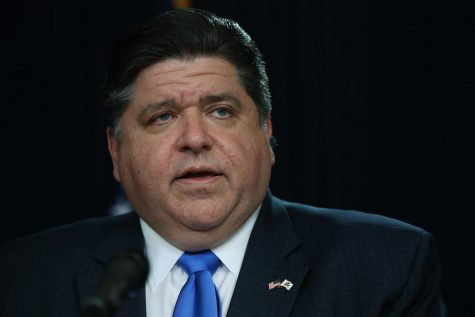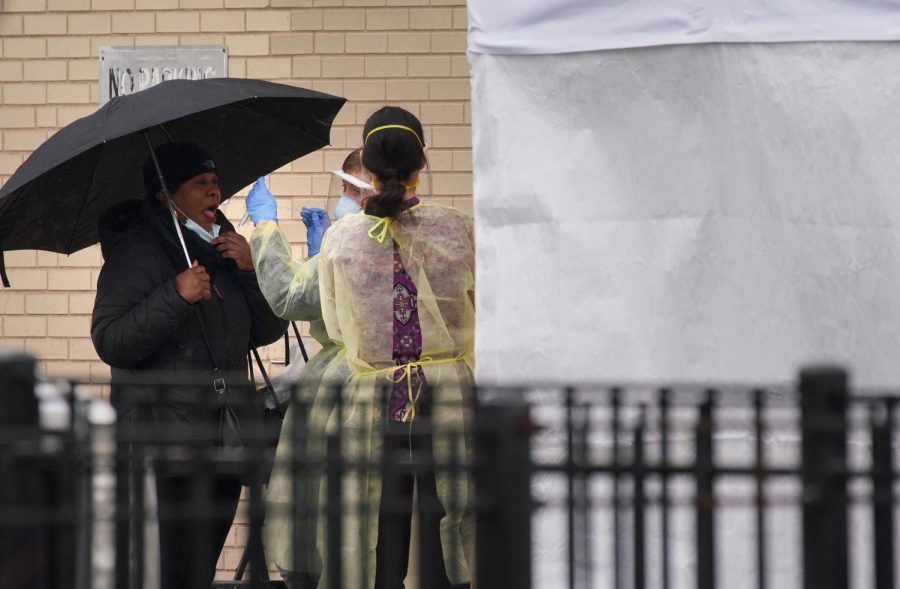Illinois governor issues stay-at-home order statewide
Photo Courtesy of Tribune News Service
Chicago Department of Health workers test a woman for flu-like symptoms outside Vaughn Occupational High School, in the Portage Park neighborhood on March. 9, 2020.
Mar 20, 2020
Last updated on April 9, 2020 at 06:46 p.m.
Illinois Gov. J.B. Pritzker mandated 12.7 million state residents to stay at home for all non-essential activities at a press conference Friday afternoon.
The “shelter-in-place order” officially begins Saturday at 5 p.m. and will last through April 7.
The order is meant to slow the spread of COVID-19 in Illinois, which has affected another 585 state residents with 5 deaths by Friday’s count.
The state’s definition of essential activities is expected to mirror that of other spots that have instituted shelter-in-place like San Francisco.
Get The Daily Illini in your inbox!
Essential activities include, among other things, going to grocery stores, gas stations and pharmacies, as well as outdoor activities like running or walking the dog, Pritzker said.
“For the vast majority of you taking precautions, your lives will not change very much,” Pritzker said.

Gov. J.B. Pritzker speaks about the most recent Illinois COVID-19, or coronavirus, numbers and statistics, during a press briefing at the Thompson Center in Chicago on Tuesday.
Pritzker said he consulted a range of epidemiologists, mathematicians and modelers to find the action that would “save the most lives.”
“To avoid the loss of potential tens of thousands of lives, we must enact an immediate stay-at-home order for the state of Illinois. So that is the action I’m announcing today,” Pritzker said.
Pritzker delivered the message alongside Chicago Mayor Lori Lightfoot, Emily Landon from the University of Chicago Medicine, Dr. Ngozi Ezike from the Illinois Department of Public Health, Brad Cole, director of the Illinois Municipal League and Dan Cronin, chairman of the Dupage County Board.
“The coronavirus won’t go away by happenstance,” Lightfoot said at the conference. “Think of this as ‘safer at home.’”
Pritzker also extended the statewide K-12 school closures to April 8, over a week past the original end of March 30. Lightfoot extended the end date to April 20 for Chicago Public Schools on Thursday.
Pritzker called for municipalities to halt all evictions during the order, and announced that the state will be “allocating additional resources for those experiencing homelessness.”
For someone breaking the order, Pritzker said law enforcement may simply talk to the offender and clarify the order, get a cease and desist order from court or, as a “last resort,” charge the resident with a misdemeanor.
“We’re asking people to do what they know they ought to,” Pritzker said.
Editor’s note: This is an ongoing report. Please stay with The Daily Illini for more updates.






